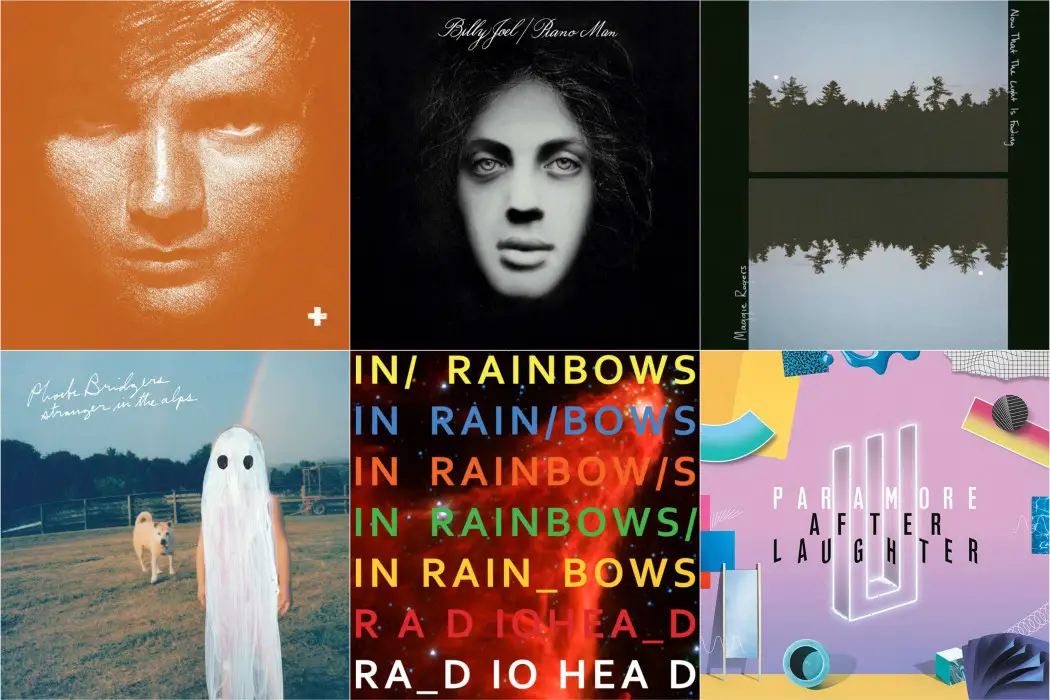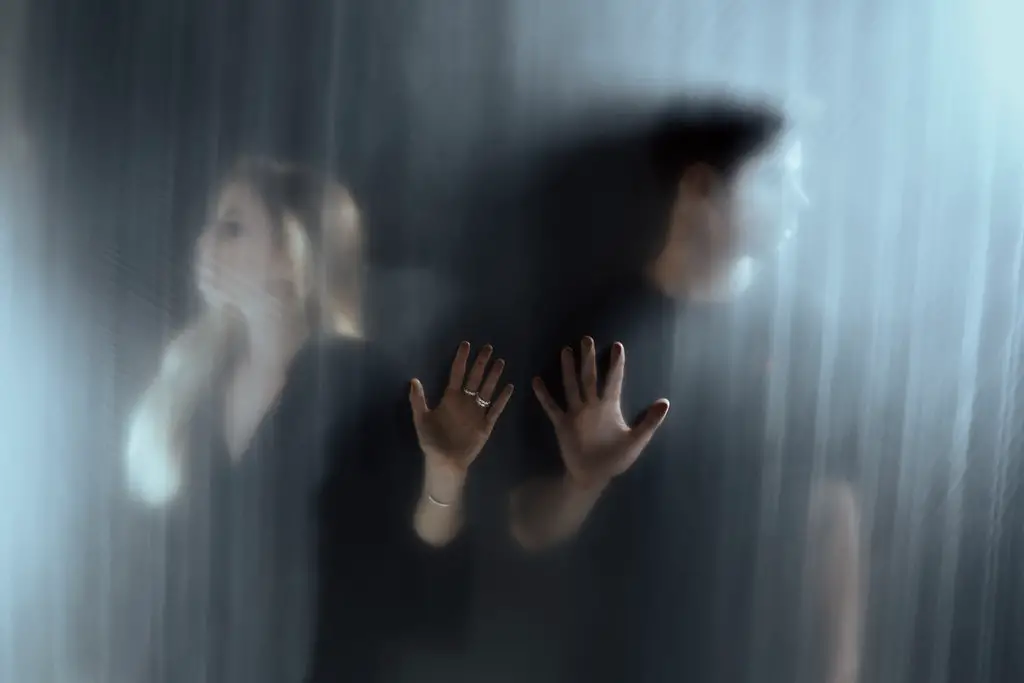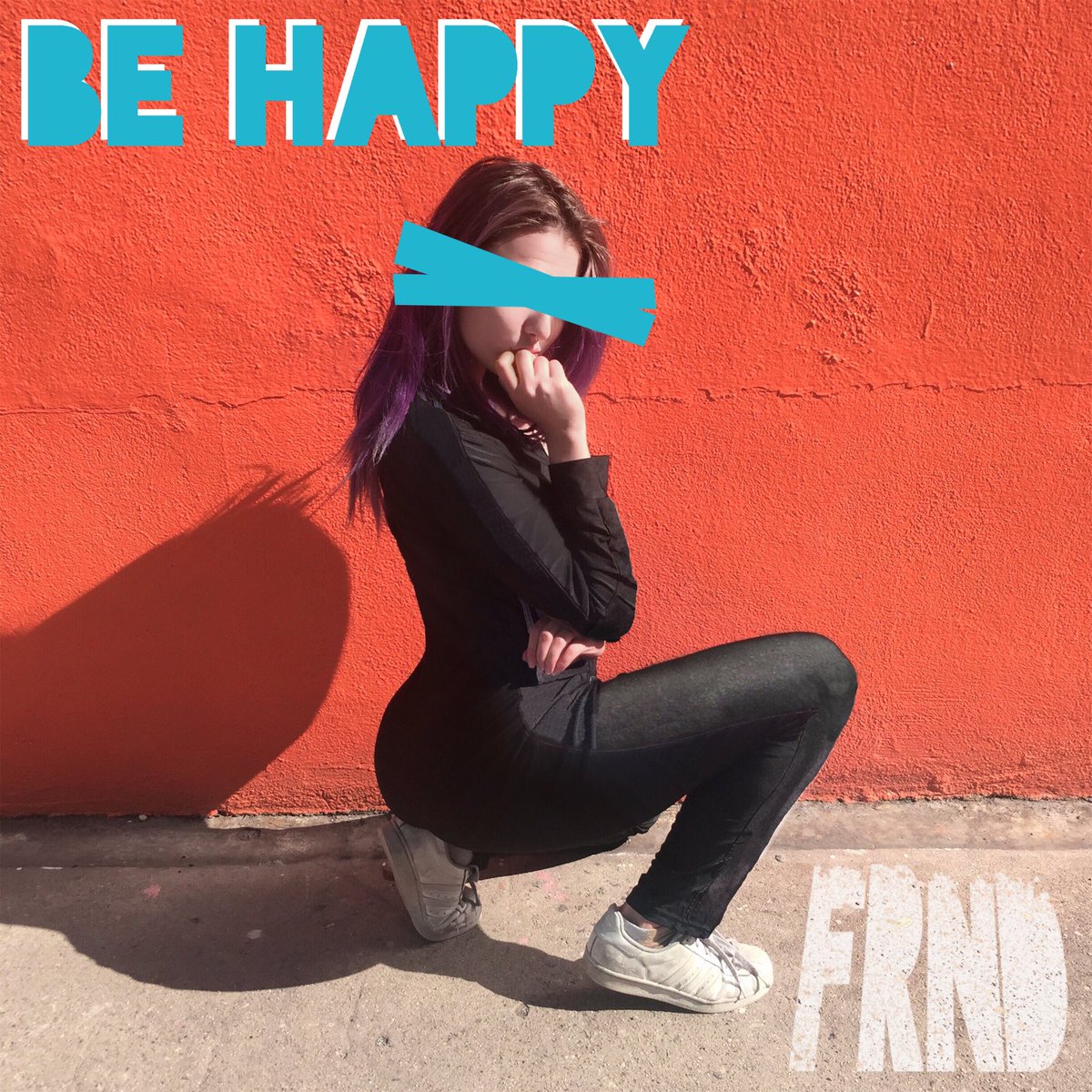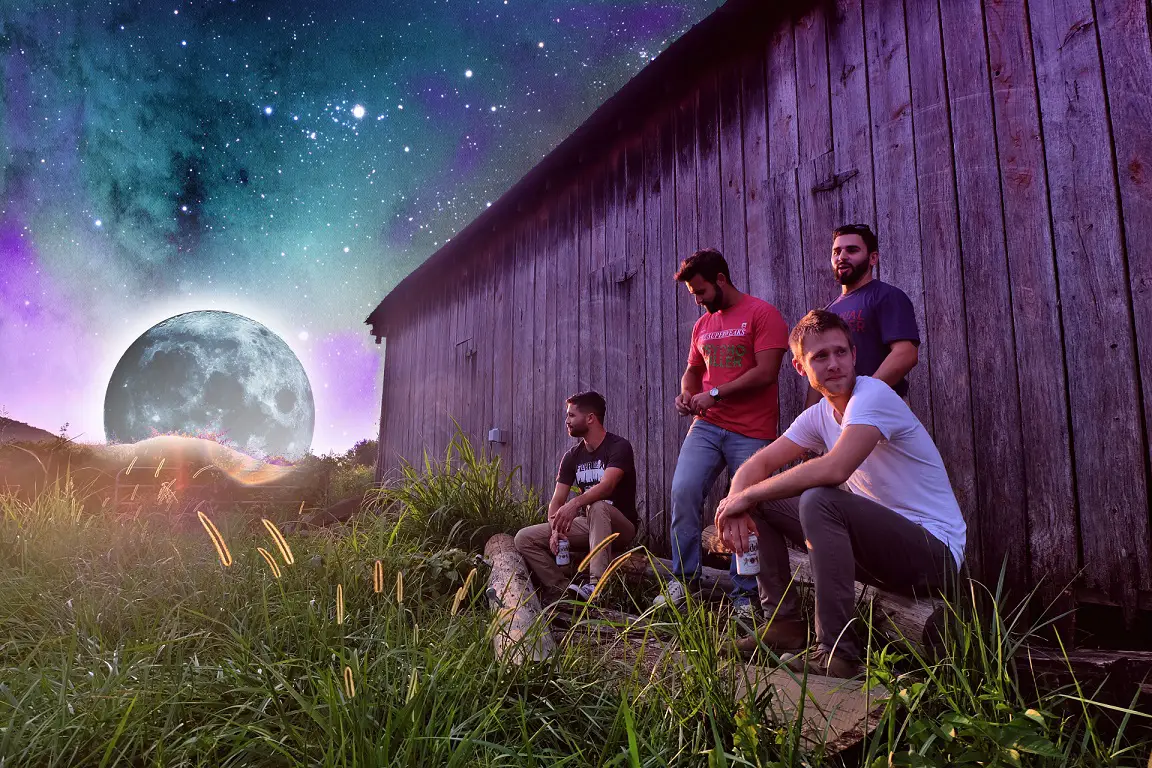It’s safe to say that music is one of the things we’re most thankful for here at Atwood. It’s the one thing which binds us all together – the writers, the readers, the artists – it’s our one and most important common denominator. This year, a few of us at Atwood decided to pick an album we are thankful for and take the time to explain how it impacted us.
? ? ? ?
:: After Laughter – Paramore ::
Nicole Almeida, Philadelphia, Pennsylvania
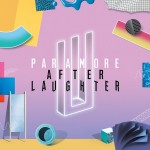
I really dismissed this album when it first came out. I hadn’t listened to Paramore in such a long time, and “Hard Times” just annoyed me because of how catchy it was. I think I had listened to it once or twice and yet found myself with the chorus stuck in my head so many times. When I first tried listening to the album, I didn’t pay attention and got bored, turned it off after the second song. However, I was interning at a place that had me doing some extensive research on Hayley Williams on a certain week, and this same week a friend of mine told me to listen to the album because of how good the contrast between lyrics and melody was. The universe was somewhat conspiring for me to listen to After Laughter, and so I did, and paid attention this time. I fell in love. I’d been going through my own emotional ups and downs, and suffering from bad anxiety, and this album helped me cope so much. Everyone tells you the cliché that it’s okay not to be okay, but when that is said so beautifully in song – and in a whole album – there’s just more meaning to it all. The melodies are great, something you can easily dance to, and yet the lyrics are so brutally honest and heartbreaking. Williams did a great job in spilling her soul out on this album, what was a catharsis for her also became a catharsis for all of her listeners. Any time an artist bares their soul in such a candid manner, something magical and unique happens, and After Laughter is just that.
:: Piano Man – Billy Joel ::
Mitch Mosk, New York, New York
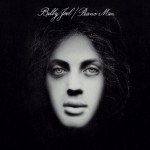
I remember the first time I really heard Billy Joel’s Piano Man: My family was on vacation in Sedona, I think… or maybe, North Carolina? Either way it’s one of the first times I truly fell in love with an entire album, absorbing every song for the unique, special place it held on a whole record. For me, Piano Man evokes feelings of home and warmth, of discovery, comfort, and knowing. It’s a personal one for Billy Joel, finding him exploring close-to-the-chest themes of belonging and self-worth in songs like “Piano Man” and “Somewhere Along the Line,” as well as my personal favorite, the loving ballad “You’re My Home” – which boasts the chorus lyric, Well I never had a place that I could call my very own, but that’s all right my love ’cause you’re my home. Those words were as evocative to a young teenager as they are to the man I’ve grown into today, a constant reminder of the things that matter most in this world: Our relationships.
Yet as intimate as Piano Man‘s themes are, the album as a whole is effortlessly light-hearted. Joel is the touring bard, traipsing from city to city and singing his songs. Bouncing opener “Travelin’ Prayer” – a veritable minstrel’s tune – was always my least favorite on the record, but it nonetheless brings a smile to my face because of the journey it opens into. Elsewhere, “Captain Jack” and epic anthem “The Ballad of Billy the Kid” add elements of fantasy into the sometimes sad reality we live in. I used to think of Captain Jack as some sort of sea-faring adventurer: Boy, have I come a long way (it’s about drinking your problems away, folks); meanwhile, I always understood “The Ballad of Billy the Kid,” perhaps thanks to the over-the-top analogy. Billy Joel compares himself to the wild, freewheeling life of an Old West gunfighter – but instead of being “a boy with a six gun in his hand,” he’s ” a boy with a six pack in his hand.” It’s a beautifully mismatched parallel, yet both Billys seem so full of potential – and for Mr. Joel, this very music was how he went about staking his claim to fame.
Every song has its place, and every song has its moments. At one point, I knew how to play most of Piano Man on the piano, and I’d go through them track by track, just like on the record. The love songs, the sad songs, the personal stories, and the embellishments… they’re all so real, so relatable, and so very deeply connected to my childhood. For the memories and the music, I am so very, very thankful.
:: + – Ed Sheeran ::
Baylee Less, Memphis, Tennessee
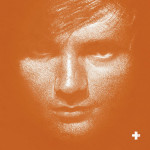
I stumbled upon Ed Sheeran in a truly unorthodox way. I found a website that allowed free streaming of the Top Ten charting songs in every country in the world (I don’t think it exists anymore). During the Fall of 2011, Ed Sheeran began to top the UK charts with his hit single “The A Team” and I began preparation for my high school graduation. I enjoyed the song and when his album came out that year as well, I decided to give it a listen. For months, “+” would play aimlessly in the background as I cleaned my room or casually pop up off my homework playlist. Listening to “+” was an exceedingly unintentional activity for me, until one day I realized I knew all the words to the whole album. I would listen to it track by track tracing Sheeran’s path through loneliness, desperation, and heartache. He sang with a fervor I had never heard before and he poeticized relationships in ways that felt intimately real. The simplicity of the melodies and matter-of-fact nature of the lyrics felt friendly and accessible almost as if Sheeran aimed to converse with his listeners. Later in my life, I would rely on “+” time and time again to pull me out of deep holes and remind me that others feel aching pains as well. His sadness validated my state of mind and helped me realize that aches are natural. “+” comforted me better than any other friend and cradled me at my worst moments. I’ll always be thankful for that album: how it made me feel both the melancholy and the hope.
:: The Amazing Jeckel Brothers – Insane Clown Posse ::
Lucas Koprowski, Glen Ellyn, IL

Without this album, and more importantly the Insane Clown Posse (ICP), you wouldn’t be reading my blurb on this website. When I hit puberty, I hated music. Not hate in a fake millennial way, but a deep passionate manner. I didn’t understand that music existed past my sister’s incessant radio-banger formulated noise riding my home’s airwaves without stop. Something about all those boy bands, in combination with her singing to those songs, convinced me to plug my ears.
I told my brother that I hated music a short time after I turned 13, and his reaction changed my life. First he laughed a little, then his face contorted into a blank stare. He walked to his closet and pulled out the CD “The Amazing Jeckel Brothers” from his collection. He sat me down, put his pair of Sony studio headphones on my head, put the CD in my player, and told me I wasn’t allowed to get up until I listened to this cover-to-cover.
Say what you want about ICP, but this album defined alternative, oddball hip hop at its release. The Jeckel Brothers built upon the ICP ecosystem of music as one of the six pillars of their early universe; the Jeckel Brothers being the fifth leg in that 12-year long era of underground rap. This album surrounds itself in bloody horror-core, carnival happiness, and an ownership of not giving a fuck. Underneath all of the gore and ridiculous comedy, the rap duo tied the Jeckel Brothers as gods of purgatory, juggling your soul until you end up in either heaven or hell.
This album shocked my personality down to its roots. I didn’t even start swearing until I turned 14, so when I heard songs about stabbing people and stealing organs, with these hilarious skits mixed intermittently to break up the heaviness, it changed my perspective on what music could be indefinitely.
Without this album, I wouldn’t be constantly searching for new music in every crevice of the world.
:: Stranger in the Alps – Phoebe Bridgers ::
Jimmy Crowley, New York, New York

I’ll be honest. I probably would’ve ignored Phoebe Bridgers’ Stranger in the Alps had it not made such a huge splash within the punk scene, but I’m so happy that this album has found its way into my regular rotation. Bridgers writes the sort of relatable songs that a number of other lyricists could’ve penned, but what made her stand out to me is her quick, casual references to pop culture. That’s really what made me thankful for this album. Bridgers describes depression through a lens that I’m familiar with. It came out right around a time that a relationship I was pursuing was fading into non-existence. Bridgers’ references to Jeffrey Dahmer, The Smiths, and David Bowie felt akin to how I was going through my own sadness, comparing my feelings to songs by The National, Diet Cig, and ultimately Bridgers. Bridgers’ contemplative lyrics punched me in the stomach for about two weeks. Her songs help to put things in perspective and helped me recover from my own sense of “Emotional Motion Sickness.”
:: Return to the Moon – El Vy ::
Kelly Wynne, Chicago, Illinois
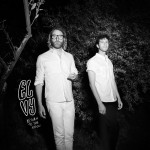
If there’s one thing in this world I’m thankful for, it’s Matt Berninger. His geniusness has transcended all other artists since I first began listening to The National in early high school. I developed a love for his artistry, creative lyricism and ability to evoke an emotion with seemingly little effort. While I love The National dearly, and am incredibly thankful for their musical repertoire, Berninger’s side project, EL VY, and the band’s debut album Return to the Moon hold a special place in my heart because of their ability to manipulate any emotion and make it feel right with a whimsical and trippy warmth.
The album is packed with sounds reminiscent of The National: it’s most definitely a sister sound, even creating characters like “Dee Dee” to put a face with each emotion. But tracks like “Silent Ivy Hotel” and “I’m The Man To Be” offer a more seductive, dark and provocative side to the calm, reflective tracks hosted on The National’s classic albums. EL VY is Berninger after dark. It’s most likely drug induced, or would imply it, with an edge that seems just a little less than sober. It’s something that feels like falling down the rabbit hole into a completely unexplored territory, yet holds true to what fans of Berninger love: his ability to be utterly relatable while making absolutely no sense at all.
Rock tracks like “Happiness Missouri” and “Sad Case” display a road trip energy, while “Paul Is Alive” and “It’s A Game” open up a vulnerable side to the album, one that still feels slightly coated in fictitious feelings and some disconnected reality. In totality, the album is perfect. There isn’t a song that disappoints. From start to finish, it’s a masterpiece of a twisted, alternate reality of Berninger’s talent, one that can uplift or support any occasion.
Because of the album’s versatility, it’s been a go to for any mood fix. If I’m sad or happy, it has songs and energy to support my emotions, and ultimately always brings me to a stability. It’s an album that sounds like home. From Berninger’s comforting and alluring voice to the lyrics I love so much, it’s an album that feels like home.
:: Antifogmatic – Punch Brothers ::
Mariel Fechik, Mount Propsect, Illinois
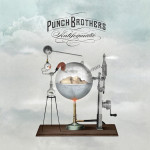
Punch Brothers are a band that not enough people know about, and I would scream that from the top of the Sears Tower (sorry, non-Chicagoans, it’s not the Willis Tower) if given the opportunity. They and their frontman, Chris Thile, are widely respected and loved in the bluegrass/classical world – but ask anyone on the street and they’ll probably say, “Who?” This album came to me my senior year of high school by way of a close friend. It came at a point of intense transition in my life. It will forever be colored by a time of deep anxiety about the future, yet also one of a deep gratitude for my friends. It also introduced me to one of the most enjoyable musical communities I’ve ever been a part of.
Musically, it’s one of the most perfect albums I’ve ever heard. I’m pretty prone to hyperbole when it comes to music, but I mean this one. Punch Brothers have consistently blurred the lines of what the bluegrass genre can be, and their musicianship is virtuosic and undeniable. Their sound is often much darker than the typical bluegrass sound. Thile’s immense aptitude for storytelling is so clear on their second album, and emotion drips from every word he sings. Songs like “Me & Us” and “The Woman and the Bell” are filled with a pointed anxiety that reverberates throughout the entire musical arrangement, from the slowly swelling strings to the angular melodies. “Missy” captures a nostalgic melancholy that always manages to make me cry, regardless of the fact that I’ve heard the song upwards of 100 times. There is never once a cheesy moment on the album, which is a quality many expect from the bluegrass. Even their “most” bluegrass song on the album, “Rye Whiskey,” emanates a strength and coolness I never thought possible in the genre.
Chris Thile’s voice, writing, and mandolin playing are things that have taken me through every transition in my life, and I’m thankful for his talent and warmth towards his fans. I realize as I write this that I’m wearing my Punch Brothers hoodie that Chris so kindly signed for me as my friends and I awkwardly invaded their post-show privacy a few years back. The signature has long washed off, but the feelings I associate with this album will never fade. It’s a beautiful album from start to finish, and one that I will recommend forever.
:: Now That The Light Is Fading – Maggie Rogers ::
Kaitlyn Zorilla, Los Angeles, California

Maggie Rogers’ debut EP Now That The Light Is Fading is—much like the natural landscapes it takes as its inspiration—breathtakingly beautiful. To hear such an honest outpouring of emotion from someone my age was extremely special for me and offered me a sense of validation that I hadn’t expected to find. I find pieces of my past in her triumphant “Alaska” and visions of my future in her hopeful “Dog Years.” I find myself drawn to these songs in moments of quiet sadness and joyful celebration. They perfectly capture both—and everything in between.
To really get to the emotion behind these songs and bask in the beauty of Rogers’ voice, I highly recommend listening to her appearance on NPR’s Tiny Desk Concert series.
:: In Rainbows – Radiohead ::
Carmen Chan, New York, New York
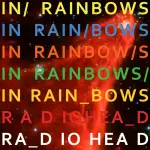
Much has been said about Radiohead’s 2007 album In Rainbows: how its release shook up the industry by adopting a “pay what you want” model, and how Radiohead pioneered the surprise album drop, but at its core, In Rainbows is a watertight forty minutes of music that has deeply imprinted itself on my psyche. In Rainbows is undoubtedly one of Radiohead’s most personal and relatable albums, and definitely the happiest by a long stretch. Its ten songs run the gamut from manic highs to grounding lows, and include the first and perhaps only time Radiohead recorded a song about something as banal as drinking on a night out.
Perhaps that’s what I enjoy the most about In Rainbows, how most of the tracks revolve around universal human experiences of love and loss, life and death. The album has become my go-to, and it’s the album I turn to when I need an instant mood lift. Pressing play feels like a warm hug; I’ve listened to the album so many times. Though the tracks are soothing in their familiarity, they are never stale. I still get a jolt of anticipation whenever I hear the drum beats at the beginning of “Weird Fishes/ Arpeggi,” and I still feel a rush of emotion from the swirling crescendos on “Nude” and “All I Need.” Even after the countless number of listens, Thom Yorke’s falsetto still slices through me in a deeply affecting way.
In Rainbows has accompanied me on long walks, subway rides, and nights lying in bed, with many of its songs sneaking onto my playlists. The music feels like a sanctuary – warm and alive, and I always seem to wholeheartedly surrender to its ability to connect me to a sonic world that reminds me to be present in the moment, and that life is a journey of ups and downs.
— —


